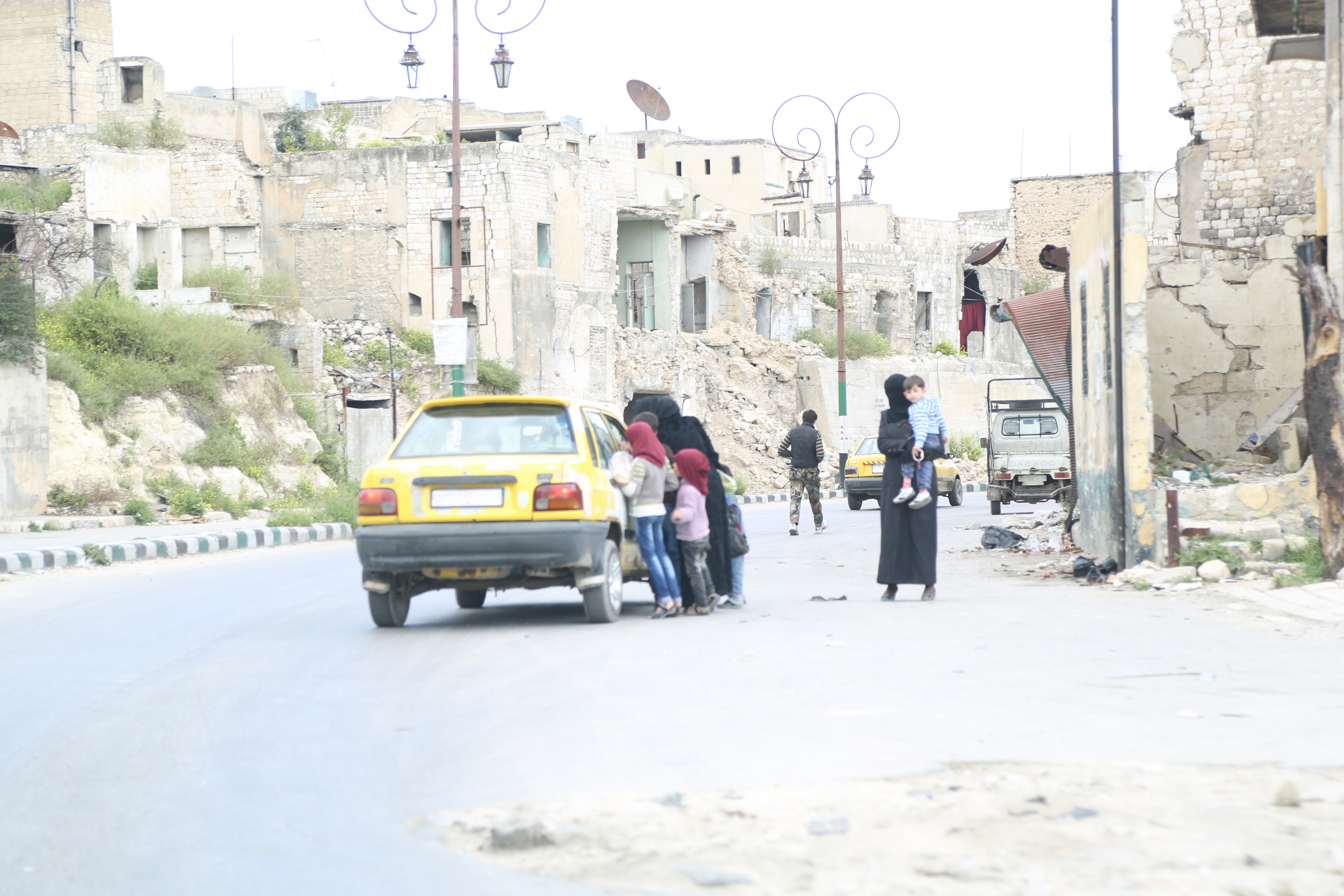The Peril of Taking Taxis in Raqqa

It was an ordinary day in mid-February 2015. Hayat pulled on her niqab (face veil) and stood in front of her mirror, making sure she was ready to leave the house.
Her brother teased her by saying, “If you have to go out looking like a ninja, why care so much about what’s beneath the disguise?”
Hayat laughed and replied, “I care for my own sake, not for anyone else’s.”
Going out into the streets of Raqqa was something of an adventure for all women living in the city. For Hayat it was a real gamble – but she had no choice.
After graduating from the faculty of education, the only way she had found to earn a living was by giving private lessons, even though such tuition had been banned by an Islamic State (IS) decree.
Hayat insisted on holding on to anything that might give her some hope, in a city isolated from the world by this sinister regime.
She cast one last glance at herself before she went out. It was nine in the morning and the weather was beautiful. Hayat enjoyed the walk, but stuck to one side of the road and kept close to the wall, for fear of being spotted by militants.
Hayat was flooded with relief when she got to the first house where her young pupils were waiting for her. She went from house to house giving lessons all morning. After her last session at one in the afternoon, she felt tired but happy with her day’s work.
She stood on the pavement looking out for a taxi. She didn’t have to wait long, and she climbed in and gave the driver her address. Her mind was already on what she would cook for supper, so she didn’t listen to the cab driver’s gossip.

A few minutes later, as she approached her house, she gestured to the driver to take the turn on the right.
An unimaginable surprise lay ahead. The taxi was stopped by an IS militant who had been following them on his motorbike.
“Your ID!” the militant screamed at the driver.
The driver looked at him in surprise.
“Why, Sheikh, is anything the matter?”
“Don’t you know you’re not allowed to pick up a woman on her own?” the militant said.
“No Sheikh, I didn’t,” the driver replied. “We’ve always driven women.”
Hayat listened from the backseat. Terrified, she had to strain to catch their conversation as her heart was beating so loudly. Any minor infringement now might reveal the fact she had been giving lessons illegally.
The militant looked at her and ordered her out of the car.
He was a young man of about 20, beardless, wearing Afghan dress although he was from Raqqa.
Hayat climbed out, the fear weighing heavily on her.
“I saw you speaking to the driver,” he said, “waving your hand about.”
“I was just showing him what road to take, Sheikh,” Hayat replied.
“No problem, no problem,” said the militant. “I swear I’ll make the blood flow from your back after you are flogged.”
Hayat’s knees buckled when she heard the word “flogging”. She began shaking, the tears running down her face.
The driver tried to intervene and resolve the situation.
“I swear this is the first time we’ve heard of this, Sheikh,” he said.
“There’s a decree about it,” the militant said, “and you’re going to have to pay a fine.”
Hayat began pleading with him, saying, “I’m begging you, Sheikh, I swear we’ve never heard of this decree.”
The militant shot her a malicious look, one she would never forget.
“We’re not [President] Bashar,” he said, “for you to plead with us like this.”
Hayat felt like she was trapped in a nightmare. Her work would end, her life would become a living hell, and she’d have to endure humiliation and punishment as well as the degradation she was currently undergoing.
The militant screamed at her again. “Give me your ID now!”
Hayat clutched her bag to her chest, mutely refusing.
Just then, two men passed by, and the driver appealed to them, saying, “Good men, have you heard anything about a decree forbidding women from traveling alone in a taxi?”
“No, we haven’t,” they answered.
Hayat stood huddled against one end of the taxi, waiting for an act of mercy to allow her to run home.
After a short dispute, the two men were able to convince the militant that no one had heard of the decree. In fact, it had only been issued the previous day.
The militant looked at Hayat and told her threateningly, “God help you if you do this again.”
Hayat felt rage and resentment welling up inside her, and an overwhelming desire to spit in his face. She managed to control herself and ran home to her place of refuge, stumbling and blinded by tears.
